Go Beyond The Secret

A year ago, The Secret was drawing cheers…and even some jeers. The cheers were for the theory's emphasis on positive thinking and living your best life through the idea of the law of attraction—but criticism arose because some believed people would use The Secret to focus more on obtaining material possessions.
No matter any criticism for The Secret , Oprah says she still believes it's valuable. "I'm grateful that for so many millions of people the door was at least opened to the idea that we are each responsible for the quality of our lives," she says. " The Secret was really just the beginning."
Acclaimed author Louise Hay wrote and published her first book at age 50. In 1984, her book You Can Heal Your Life started its run as an international best-seller. At age 81, she is considered the mother of the concept of using positive thinking and the law of attraction.
Louise agrees that The Secret is a good first step. "I thought it's great. It's going to go to lots of people who don't know anything about this. The metaphysical people already know this, but we don't use it for things, we use it to improve the quality of our lives."
No matter any criticism for The Secret , Oprah says she still believes it's valuable. "I'm grateful that for so many millions of people the door was at least opened to the idea that we are each responsible for the quality of our lives," she says. " The Secret was really just the beginning."
Acclaimed author Louise Hay wrote and published her first book at age 50. In 1984, her book You Can Heal Your Life started its run as an international best-seller. At age 81, she is considered the mother of the concept of using positive thinking and the law of attraction.
Louise agrees that The Secret is a good first step. "I thought it's great. It's going to go to lots of people who don't know anything about this. The metaphysical people already know this, but we don't use it for things, we use it to improve the quality of our lives."
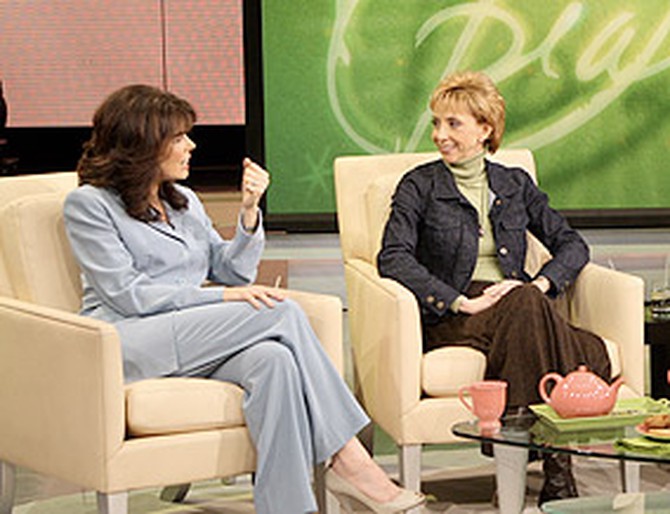
Martha Beck is a life coach, author of Steering by Starlight and columnist for O, The Oprah Magazine. She says she learned about the power of The Secret in a most unusual way. "I read the book on an airplane, and thought, 'Some of this rings really true to me, and some of it really doesn't.' I don't think just because I think of things they come to me."
As she got off the plane, Martha says she got a call on her cell phone from someone she barely knew. "[She was] saying, 'I'm reading this book called The Secret that everybody's talking about, and when [it mentions Martha in the book], I thought I'd call you.' I said, 'I'm not in that book.' Well, it turned out she was reading another book called The Secret that [wasn't as well-known] that mentioned me. So here I am thinking my thoughts don't create reality … I get off the phone, suddenly my thought becomes reality. So I thought, 'It works, but I have to figure out how.'"
When Cheryl Richardson, life coach and author of The Unmistakable Touch of Grace, got a call from her 70-year-old mother-in-law about The Secret, she knew it was a big deal. "I thought, 'If that's what The Secret does, reaches people from all walks of life who maybe had not thought of this, it's done its job.' God knows that's what we need on the planet right now."
As she got off the plane, Martha says she got a call on her cell phone from someone she barely knew. "[She was] saying, 'I'm reading this book called The Secret that everybody's talking about, and when [it mentions Martha in the book], I thought I'd call you.' I said, 'I'm not in that book.' Well, it turned out she was reading another book called The Secret that [wasn't as well-known] that mentioned me. So here I am thinking my thoughts don't create reality … I get off the phone, suddenly my thought becomes reality. So I thought, 'It works, but I have to figure out how.'"
When Cheryl Richardson, life coach and author of The Unmistakable Touch of Grace, got a call from her 70-year-old mother-in-law about The Secret, she knew it was a big deal. "I thought, 'If that's what The Secret does, reaches people from all walks of life who maybe had not thought of this, it's done its job.' God knows that's what we need on the planet right now."
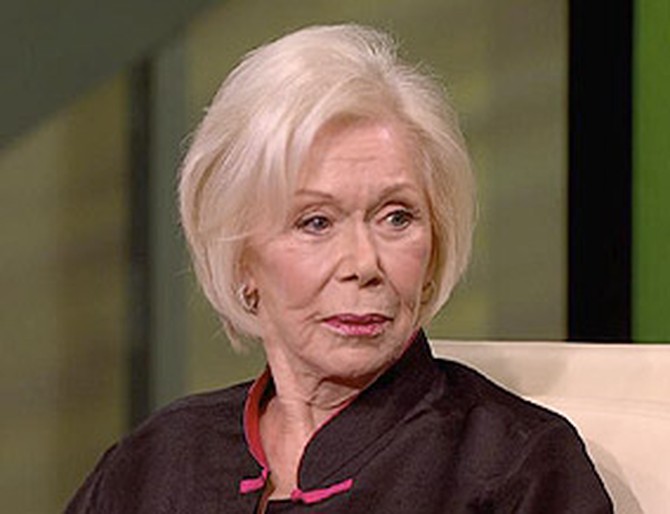
Louise's current path started later in life. "I was in my 50s when I heard someone say, 'If you change your thinking, you can change your life,'" she says. She says she started her study with a book called The Game of Life and How to Play It by Florence Scovel Shinn, first published in the 1920s. "I used to use that as a bible," she says.
While teaching workshops in the 1980s, Louise says she was pleased with how she was helping others. "But if I could put this workshop on paper, I could help many more people," she says. "Little did I know how many more. I took six months and wrote a book. Life took it off."
After 24 years and an astounding 95th printing, Louise's book You Can Heal Your Life has been turned into a movie.
Louise says that whatever you put into the universe—be it good or bad—will come back to you. "It's almost as though the universe is listening to everything you say and everything you think and saying, 'Oh, that's what they want.' But most of the time we're talking very negatively about ourselves," she says. "How can the universe bring you anything good if that's the way you're talking? That's why I like to teach people to love themselves, just to love and adore who you are."
In one of her lessons, Louise instructs students to look in the mirror and address themselves. "Say, 'Louise, I love you. I really, really love you.' When you can do that, your life is really going to flow," she says. "So get this thing: I love life, and life loves me. I love myself, I love this, and I am grateful for everything."
While teaching workshops in the 1980s, Louise says she was pleased with how she was helping others. "But if I could put this workshop on paper, I could help many more people," she says. "Little did I know how many more. I took six months and wrote a book. Life took it off."
After 24 years and an astounding 95th printing, Louise's book You Can Heal Your Life has been turned into a movie.
Louise says that whatever you put into the universe—be it good or bad—will come back to you. "It's almost as though the universe is listening to everything you say and everything you think and saying, 'Oh, that's what they want.' But most of the time we're talking very negatively about ourselves," she says. "How can the universe bring you anything good if that's the way you're talking? That's why I like to teach people to love themselves, just to love and adore who you are."
In one of her lessons, Louise instructs students to look in the mirror and address themselves. "Say, 'Louise, I love you. I really, really love you.' When you can do that, your life is really going to flow," she says. "So get this thing: I love life, and life loves me. I love myself, I love this, and I am grateful for everything."
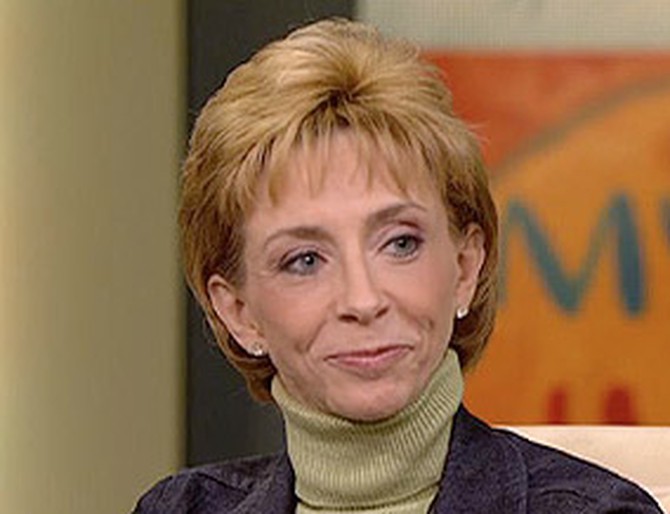
Martha Beck gets to the heart of the law of attraction in the February 2008 issue of O, The Oprah Magazine . In her remarkable column , Martha looks at the case of Alice Gorman, a woman who created a "love list" —a list of the 100 qualities she was looking for in a man—and then watched as a man who matched the list almost exactly entered her life.
Martha explains there are two ways to create such a list. One is what she calls "the shallow way." "It comes from our fears and from our grasping," she says. "'I want a man to make me happy.' 'I want a man to make me secure.' It's very fear-based. 'I want a man who's handsome so he'll look good to other people.'"
If you make a list for a shallow reason, Martha says, it just won't work.
The other way to create a list is if you've been through "the ring of fire." This is a period of adversity that can change the reasons you want things from shallowness into wanting from a "core of peace."
"The classic example is King Midas. He thought he wanted everything he touched to turn to gold. Turns out that his wife and his child and his bed all became metal, so his core of peace didn't want that at all," Martha says. "It's meant to teach us not to grasp for things in the shallows because if they come true from there, they're not good for us. In his core of peace, what [Midas] wanted was love and that, if he'd gone there and made a list, he would have had love and gold and everything."
Martha explains there are two ways to create such a list. One is what she calls "the shallow way." "It comes from our fears and from our grasping," she says. "'I want a man to make me happy.' 'I want a man to make me secure.' It's very fear-based. 'I want a man who's handsome so he'll look good to other people.'"
If you make a list for a shallow reason, Martha says, it just won't work.
The other way to create a list is if you've been through "the ring of fire." This is a period of adversity that can change the reasons you want things from shallowness into wanting from a "core of peace."
"The classic example is King Midas. He thought he wanted everything he touched to turn to gold. Turns out that his wife and his child and his bed all became metal, so his core of peace didn't want that at all," Martha says. "It's meant to teach us not to grasp for things in the shallows because if they come true from there, they're not good for us. In his core of peace, what [Midas] wanted was love and that, if he'd gone there and made a list, he would have had love and gold and everything."
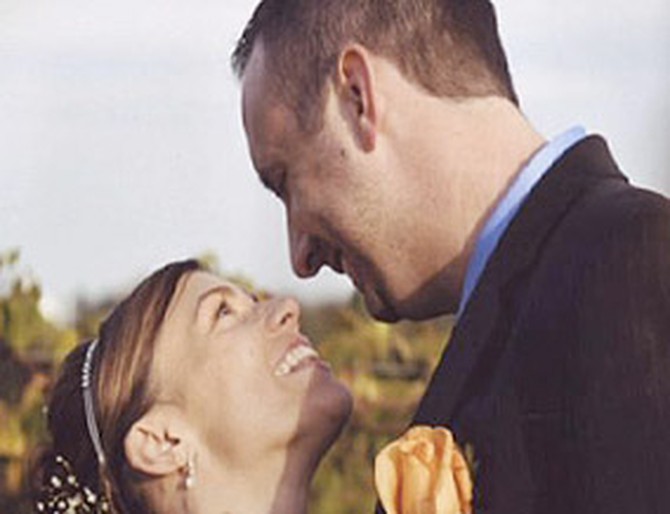
While Martha's article about Alice touched many readers, Erin says it nearly knocked her out of her chair. "In December 2006, I made a detailed list of what I wanted in a life partner. I included everything from hairstyle and hobbies to spirituality, health and raising children," she says. "Less than two months later, I met my wonderful now-boyfriend of one year. He is absolutely everything above and beyond what I had listed."
Heather says she made her own love list in 2002 and put it away in a drawer. "Later that year, I met my future husband, Greg. In 2006, he proposed, and a few months later I came across my list," she says. "And there were the qualities of my husband. Every time I read my list, I smile knowing I ordered my husband from the universe."
Melissa's love list dates back all the way to 2000. "Did I get what I wanted right away? Uh, no," she says. "But I kept learning, not settling, and growing as a person." Melissa—pictured above on her wedding day—recently found the list buried among old receipts. "I realized that Will, my husband, was all of the things I had asked for. Do I believe in the power of a list? A little. But I also believe in the power of me, and I worked hard to find healthy love," she says. "That's living my best life."
Heather says she made her own love list in 2002 and put it away in a drawer. "Later that year, I met my future husband, Greg. In 2006, he proposed, and a few months later I came across my list," she says. "And there were the qualities of my husband. Every time I read my list, I smile knowing I ordered my husband from the universe."
Melissa's love list dates back all the way to 2000. "Did I get what I wanted right away? Uh, no," she says. "But I kept learning, not settling, and growing as a person." Melissa—pictured above on her wedding day—recently found the list buried among old receipts. "I realized that Will, my husband, was all of the things I had asked for. Do I believe in the power of a list? A little. But I also believe in the power of me, and I worked hard to find healthy love," she says. "That's living my best life."
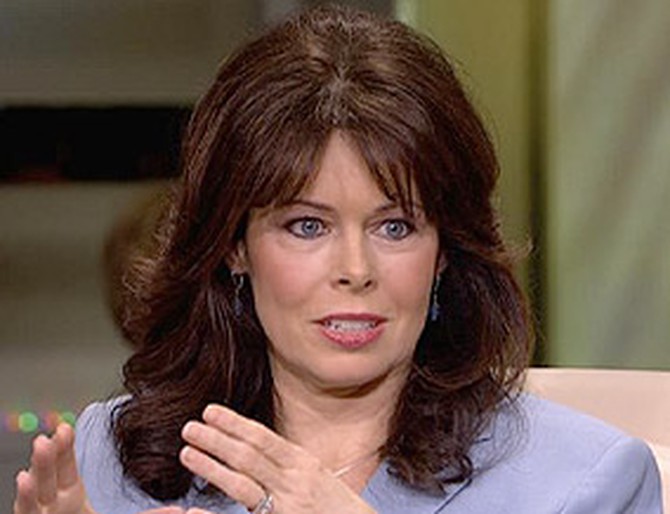
Cheryl says trying to mistakenly use the law of attraction to get material things is really just the first step of a personal evolution. Eventually, she says, we should be able to get beyond that. "We didn't come here to buy SUVs and buy nice jeans," she says. "We all know that. Every human being I talk to knows that."
It is understandable to initially want those things, but Cheryl says the transition will come. "For example, when I first began this many years ago, I made a list on a little yellow sticky note of three things that I wanted. When it happened, I paid attention. I thought, 'Oh, my God, I cannot believe this occurred.' That started me on a spiritual journey. … As we do that, we start to move from the [material] things being so important, to who we're becoming as human beings and as spiritual beings being more important," she says. "From there, we start to care about the people around us and how we're influencing them."
It is understandable to initially want those things, but Cheryl says the transition will come. "For example, when I first began this many years ago, I made a list on a little yellow sticky note of three things that I wanted. When it happened, I paid attention. I thought, 'Oh, my God, I cannot believe this occurred.' That started me on a spiritual journey. … As we do that, we start to move from the [material] things being so important, to who we're becoming as human beings and as spiritual beings being more important," she says. "From there, we start to care about the people around us and how we're influencing them."
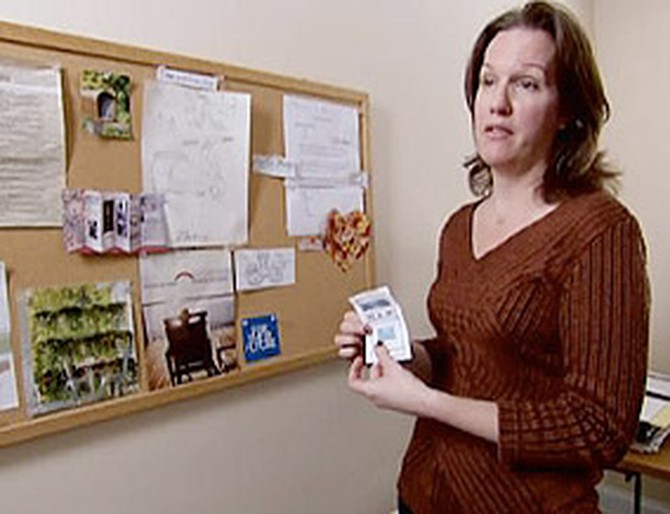
After reading The Secret, Nancy decided to make a vision board. On it, she included materials relating to her planned remodeling of her kitchen, including a Wolf stove. When she later bought a range it was a different brand—but after installing it, a burner would not start. She tried another one, but that didn't work either. Eventually, Nancy bought a Wolf, which did work. "Even when I tried to buy something else, the laws of attraction weren't letting me do that."
Nancy also put the name of a former client—who she hadn't heard from in seven or eight years—and his company on her vision board. "A few months went by, and out of the blue, his editor at that company called me and wondered if I was available to write an article for him."
"It's not about sitting on your couch and waiting for stuff to magically manifest in your life," Nancy says. "You have to keep your goals clear and keep them in front of you. That's what this vision board does for me. It makes me believe that it's all out there waiting for me. … It's a matter of seeing it on the board and then seeing it in my life and making that connection."
Nancy also put the name of a former client—who she hadn't heard from in seven or eight years—and his company on her vision board. "A few months went by, and out of the blue, his editor at that company called me and wondered if I was available to write an article for him."
"It's not about sitting on your couch and waiting for stuff to magically manifest in your life," Nancy says. "You have to keep your goals clear and keep them in front of you. That's what this vision board does for me. It makes me believe that it's all out there waiting for me. … It's a matter of seeing it on the board and then seeing it in my life and making that connection."

Nancy says her vision board keeps her goals constantly in her mind. "It's kind of a visual and verbal articulation of my goals," she says. "I can remind myself, 'You need to take actions if you want these goals to show up.' It's not a magic trick, really. It's about you being the person who's motivated to make that stuff show up."
Louise says a vision board can be a very effective tool. "It helps you to focus your thinking on what you want," she says. "When you do that, it's like the universe gives you ideas [on how to get it]."
Martha says she sees two reasons the vision board works. One is something called "selective attention." "If you repeat the word, 'blue, blue, blue,' and you start looking around the room, all the blue things will start popping out," she says. "Part of it is quantum physics. … We know now, scientifically, that consciousness brings matter into being where there was energy. So it's not even necessarily that it draws it toward you. The conclusion is you're literally creating some of this stuff."
Cheryl says the vision board's power also comes from the simple fact that it allows people time to focus and do something about their lives. "People say to me, 'Oh, I don't know about this law of attraction. I don't know if it really works.' I say to them, 'So, what have you done lately to test it?' 'Oh, well, I think about what I want,'" she says. "That's not good enough. You need to take specific action—make a list, do a vision board, start speaking what it is you want."
Louise says a vision board can be a very effective tool. "It helps you to focus your thinking on what you want," she says. "When you do that, it's like the universe gives you ideas [on how to get it]."
Martha says she sees two reasons the vision board works. One is something called "selective attention." "If you repeat the word, 'blue, blue, blue,' and you start looking around the room, all the blue things will start popping out," she says. "Part of it is quantum physics. … We know now, scientifically, that consciousness brings matter into being where there was energy. So it's not even necessarily that it draws it toward you. The conclusion is you're literally creating some of this stuff."
Cheryl says the vision board's power also comes from the simple fact that it allows people time to focus and do something about their lives. "People say to me, 'Oh, I don't know about this law of attraction. I don't know if it really works.' I say to them, 'So, what have you done lately to test it?' 'Oh, well, I think about what I want,'" she says. "That's not good enough. You need to take specific action—make a list, do a vision board, start speaking what it is you want."
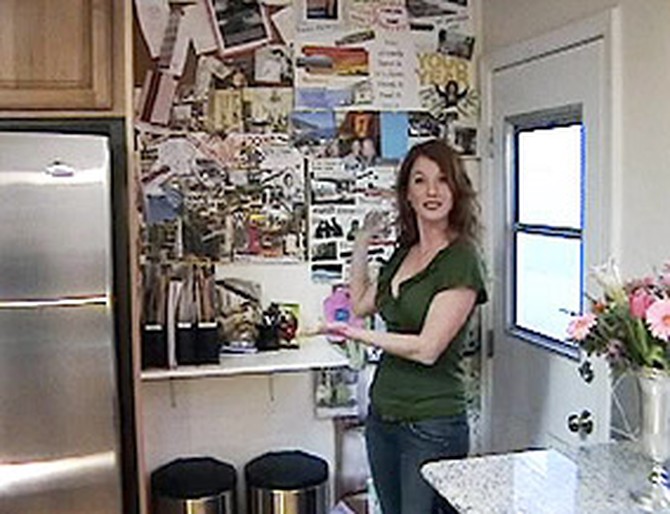
Two years ago, Meadow believed her life was falling apart. "I was fat, I was broke, I was crying every day," Meadow says. "I lived in a place I didn't like. I lived in the snow, and I hated it there. I was drinking, and I was in trouble."
One day while sitting at Los Angeles International Airport and watching the departures, Meadow says she was struck by the feeling of wanting to go anywhere but back home. She went to the beach and asked for help. "The following day, I got a new client that gave me the secret to the law of attraction," she says.
Meadow says she began regularly reading Martha Beck's O column, which lead her to Martha's book, Finding Your Own North Star. "That book changed my life," Meadow says. "I started thinking in a new way, and from there my life has gone just skyward. Everything I asked for has come true. I wanted to live at the beach, and that has come true. My family is healthy and happy. I love my job, I sold my old business and someone who is passionate about that business now runs it."
In Meadow's house, the vision board is a family affair. It occupies an entire wall in the kitchen. "It has all our family's visions on it.
One day while sitting at Los Angeles International Airport and watching the departures, Meadow says she was struck by the feeling of wanting to go anywhere but back home. She went to the beach and asked for help. "The following day, I got a new client that gave me the secret to the law of attraction," she says.
Meadow says she began regularly reading Martha Beck's O column, which lead her to Martha's book, Finding Your Own North Star. "That book changed my life," Meadow says. "I started thinking in a new way, and from there my life has gone just skyward. Everything I asked for has come true. I wanted to live at the beach, and that has come true. My family is healthy and happy. I love my job, I sold my old business and someone who is passionate about that business now runs it."
In Meadow's house, the vision board is a family affair. It occupies an entire wall in the kitchen. "It has all our family's visions on it.
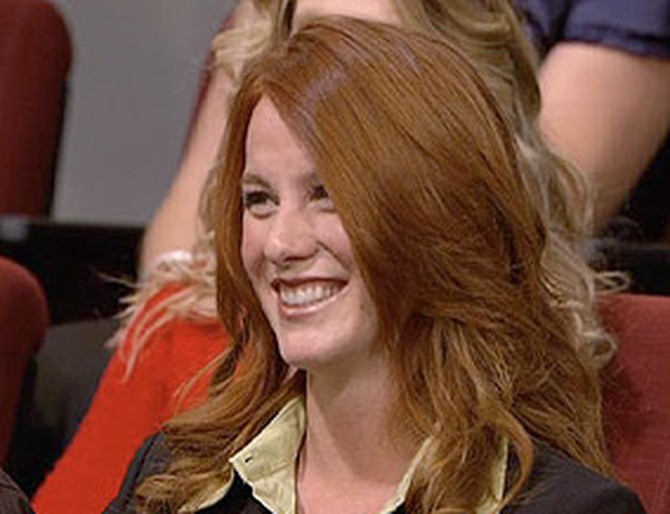
Meadow was able to turn her life around—she's now a life coach and is helping others with the struggles she once had. Meadow says her life changed when she met Martha Beck.
"I taught her that she knew all along what she was supposed to have and that she should just open her arms wider because the universe was trying to give her a big mission in life," Martha says. "She's helped so many people."
Meadow says her transformation involved changing the way she viewed her emotions. "I started to think differently," she says. "The way that I learned the law of attraction is that your feelings are the magnet. It's not only the thought, it's the emotion. So if you feel good, you start pulling things from the universe that make you feel good.
Louise says forgiveness is a big part of the journey. "Sometimes when things don't work, there's somebody you need to forgive," she says. "Any bitterness that we have in us can just stop the whole process. So we need to look around and say, 'All right, who do I need to forgive?' There's always somebody."
Forgiveness, however, does not mean you need to befriend the person who hurt you. "You don't even have to condone their behavior," Louise says. "It's just that you let the whole thing go; you separate yourself from the experience."
"I taught her that she knew all along what she was supposed to have and that she should just open her arms wider because the universe was trying to give her a big mission in life," Martha says. "She's helped so many people."
Meadow says her transformation involved changing the way she viewed her emotions. "I started to think differently," she says. "The way that I learned the law of attraction is that your feelings are the magnet. It's not only the thought, it's the emotion. So if you feel good, you start pulling things from the universe that make you feel good.
Louise says forgiveness is a big part of the journey. "Sometimes when things don't work, there's somebody you need to forgive," she says. "Any bitterness that we have in us can just stop the whole process. So we need to look around and say, 'All right, who do I need to forgive?' There's always somebody."
Forgiveness, however, does not mean you need to befriend the person who hurt you. "You don't even have to condone their behavior," Louise says. "It's just that you let the whole thing go; you separate yourself from the experience."
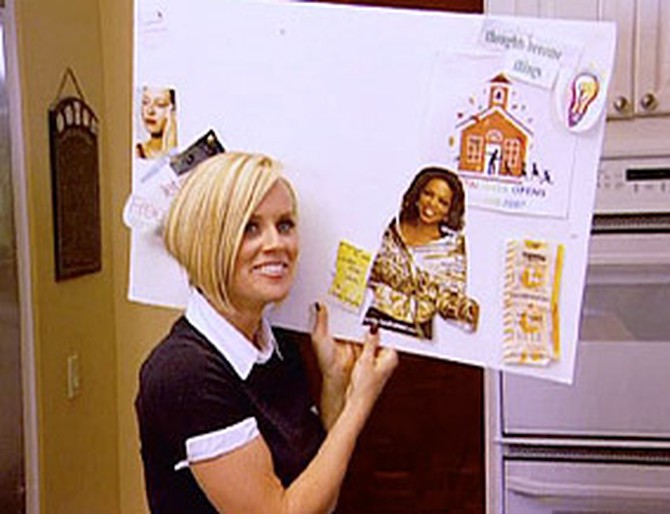
Jenny McCarthy says she is living proof that the law of attraction works. After reading The Secret, Jenny says she decided to make a vision board. She put a picture of Oprah on it along with a fake cover of the book she had just started writing called Louder Than Words.
Just one year later, Jenny's dreams became reality when she made her first visit to The Oprah Show to talk about her son's struggle with autism. Louder Than Words quickly became a New York Times best-seller.
Just one year later, Jenny's dreams became reality when she made her first visit to The Oprah Show to talk about her son's struggle with autism. Louder Than Words quickly became a New York Times best-seller.
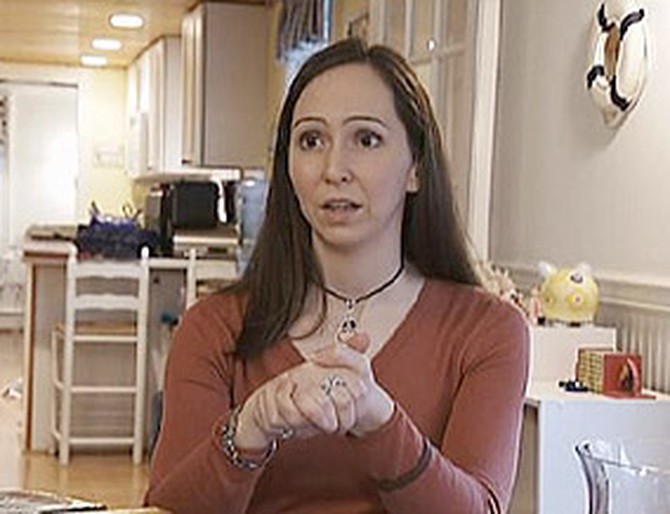
When Kelly was growing up, she says her alcoholic father kept her from being truly happy. "He was definitely an alcoholic, and he was an alcoholic like his father," she says. "Because of that, I kind of felt since he followed in his father's footsteps, I would probably follow in his footsteps and be depressed and maybe alcoholic."
Kelly says she started taking anti-depressants but still couldn't find happiness. "I was just so miserable," she says. "It was like a hole that I couldn't get out of. I basically was depressed up until about my thirtieth birthday—about the time my dad died."
After receiving a phone call from her sister asking her if she had read The Secret, Kelly read the book and says everything in her life began to make sense. "The victim thing, it doesn't work out," she says. "You know if I'm putting out to the universe that I should be blaming someone and miserable and unhappy, I'm getting more of that in return. When I turned it around, I focused on what I want, what I have, what I'm grateful for— my son, my husband, my job, my family, my friends. I said, 'Wow, this is really good. Let's focus on that and get more of that.'"
Kelly says she started taking anti-depressants but still couldn't find happiness. "I was just so miserable," she says. "It was like a hole that I couldn't get out of. I basically was depressed up until about my thirtieth birthday—about the time my dad died."
After receiving a phone call from her sister asking her if she had read The Secret, Kelly read the book and says everything in her life began to make sense. "The victim thing, it doesn't work out," she says. "You know if I'm putting out to the universe that I should be blaming someone and miserable and unhappy, I'm getting more of that in return. When I turned it around, I focused on what I want, what I have, what I'm grateful for— my son, my husband, my job, my family, my friends. I said, 'Wow, this is really good. Let's focus on that and get more of that.'"
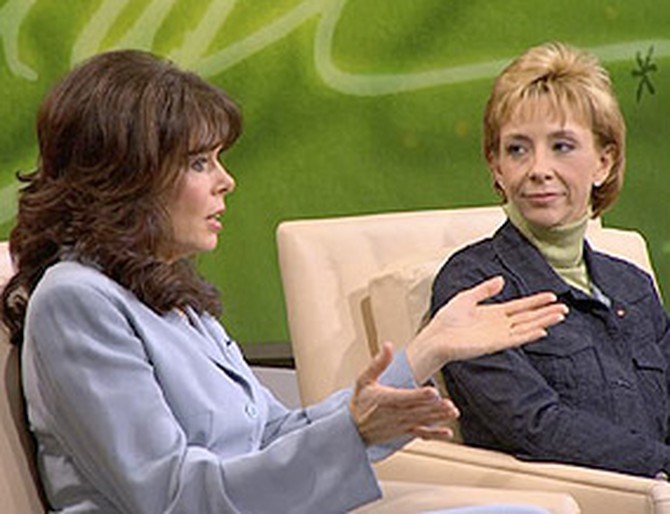
The change for Kelly came when she says she learned to view her father differently. "I actually learned to forgive my father after his death," she says. "More than that, I really learned to thank him for the entire experience. All that being the victim and placing the blame, I realized it wasn't working out, and in thanking him, I've found the perfection in every situation, and I've found the perfection in [my father], too."
Kelly says she can partially thank her father for her evolution even though her experience caused her misery. "I wouldn't have been seeking out this greater truth to life," she says. "I probably would have been very complaisant somewhere, but this for me is what works."
Cheryl says that even though feeling like a victim is often looked down upon, it is simply a step in a spiritual journey. "Very often, it's when we feel the most like a victim that we are on the precipice of a catalyst for change," she says. Some victims may get stuck, but the possibility of change is there for them when they are ready. "When you're feeling like a victim, you are so close to being able to step over the line and reclaim the spiritual power that you have," Cheryl says.
Although Martha says there are genuine victims, victimization has a boomerang effect. "The more victimized you were, the more powerful you become," she says.
Kelly says she can partially thank her father for her evolution even though her experience caused her misery. "I wouldn't have been seeking out this greater truth to life," she says. "I probably would have been very complaisant somewhere, but this for me is what works."
Cheryl says that even though feeling like a victim is often looked down upon, it is simply a step in a spiritual journey. "Very often, it's when we feel the most like a victim that we are on the precipice of a catalyst for change," she says. Some victims may get stuck, but the possibility of change is there for them when they are ready. "When you're feeling like a victim, you are so close to being able to step over the line and reclaim the spiritual power that you have," Cheryl says.
Although Martha says there are genuine victims, victimization has a boomerang effect. "The more victimized you were, the more powerful you become," she says.
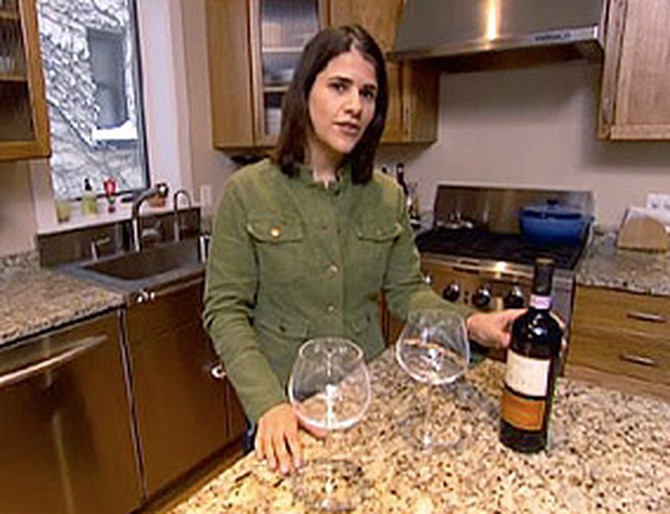
Alison is a psychologist who decided to open her own consulting business. "In 2006, I was really struggling with my business, and my brother told me to buy The Secret," she says.
"One of the first things I started doing was visualizing e-mails coming in," Alison says. "I would lie in bed and visualize what I wanted to have happen the next day. In the morning, there would be e-mails from people asking about services."
A year later, she says her business doubled. So when Alison's husband came home from work one day and announced he had been laid off from his job, Alison's optimism didn't waver. "I immediately decided, 'I am not going to a dark place,'" she says. "I thought, 'Let's celebrate.' So we got out the glasses, poured some wine and raised a toast. The law of attraction was working, because within a few weeks, he had a new job that was more money. I knew that keeping a positive attitude was key to how swiftly things turned out so well for him."
"One of the first things I started doing was visualizing e-mails coming in," Alison says. "I would lie in bed and visualize what I wanted to have happen the next day. In the morning, there would be e-mails from people asking about services."
A year later, she says her business doubled. So when Alison's husband came home from work one day and announced he had been laid off from his job, Alison's optimism didn't waver. "I immediately decided, 'I am not going to a dark place,'" she says. "I thought, 'Let's celebrate.' So we got out the glasses, poured some wine and raised a toast. The law of attraction was working, because within a few weeks, he had a new job that was more money. I knew that keeping a positive attitude was key to how swiftly things turned out so well for him."
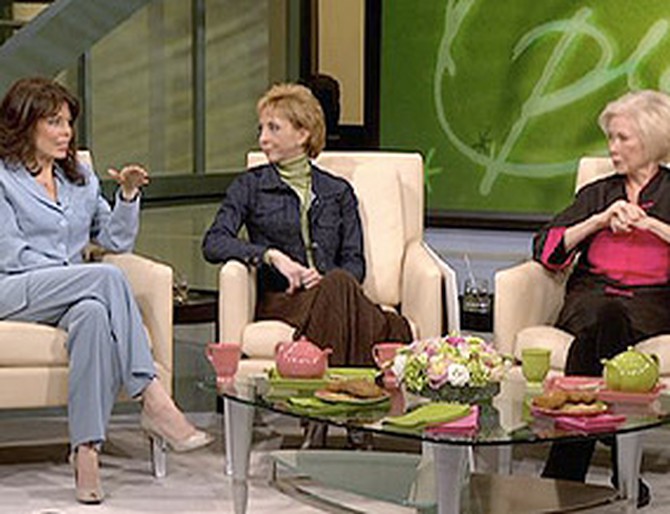
Louise says Alison's husband lost his job for a reason. "Life had something in store for him, but he wouldn't let go of the old job," she says. "So it took it away from you."
By changing the way she viewed the situation, Alison says her husband's job loss became a blessing instead of a tragedy. "What I thought to myself is, 'What do I want for him?' I want him to be somewhere he is truly valued, where his can really contribute, because he is very talented at what he does," she says.
Martha applauds Alison for being able to see the positive instead of the negative. "She had a moment where fear came in, and she decided to go with courage and not with fear," she says.
Alison says she knew that if she told anyone about her husband's job loss, they would cast a negative energy. So she kept it quiet instead. "My intuition was, 'Let's keep it private so we can really stay in that place of celebration and enjoy this time that you're off work,'" she says.
Cheryl says surrounding herself with people who bring positive energy instead of naysayers who bring negative energy helped Alison. "We need to be looking at how we can protect the things that are deeply important to our soul," she says.
By changing the way she viewed the situation, Alison says her husband's job loss became a blessing instead of a tragedy. "What I thought to myself is, 'What do I want for him?' I want him to be somewhere he is truly valued, where his can really contribute, because he is very talented at what he does," she says.
Martha applauds Alison for being able to see the positive instead of the negative. "She had a moment where fear came in, and she decided to go with courage and not with fear," she says.
Alison says she knew that if she told anyone about her husband's job loss, they would cast a negative energy. So she kept it quiet instead. "My intuition was, 'Let's keep it private so we can really stay in that place of celebration and enjoy this time that you're off work,'" she says.
Cheryl says surrounding herself with people who bring positive energy instead of naysayers who bring negative energy helped Alison. "We need to be looking at how we can protect the things that are deeply important to our soul," she says.
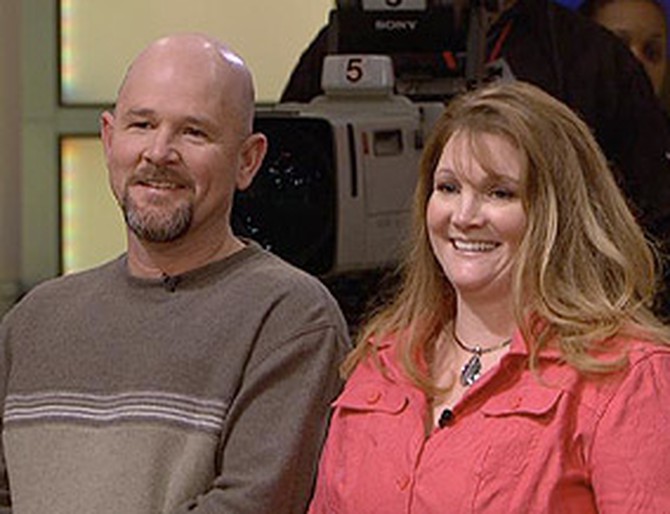
Marie is afraid her positive energy is conflicting with her husband's negative energy. "My question is, how exactly does the law of attraction work in a marriage and a business when half of the relationship is focusing on the positive and half on the negative? Who is attracting what?"
Although Marie's husband, Joe, says he doesn't exactly describe himself as negative, he is cautious when it comes to making decisions. "Some people like to jump in the pool with both feet, and some like to put their toe in and see if it's cold," he says.
Cheryl says her advice for Joe is to write three things on a sticky note that he would like drawn into his life and look at it daily. "You don't have to look at it too hard, but just look at it every day. Then notice how long it takes for at least one of those items to show up," she says.
Trying to convince someone before they see it for themselves is a waste of time, Cheryl says. "Just give yourself the experience of seeing that it works," she says. If Joe does this, Cheryl says he'll be able to come fully on board with Marie's positive energy. "The power that your family is then going to have is going to be really quite amazing," she says.
Louise has one addition to add to Joe's assignment. "You put that sticky note on the mirror and every time you look at that you say, 'I love you, Joe. I really love you.'"
Although Marie's husband, Joe, says he doesn't exactly describe himself as negative, he is cautious when it comes to making decisions. "Some people like to jump in the pool with both feet, and some like to put their toe in and see if it's cold," he says.
Cheryl says her advice for Joe is to write three things on a sticky note that he would like drawn into his life and look at it daily. "You don't have to look at it too hard, but just look at it every day. Then notice how long it takes for at least one of those items to show up," she says.
Trying to convince someone before they see it for themselves is a waste of time, Cheryl says. "Just give yourself the experience of seeing that it works," she says. If Joe does this, Cheryl says he'll be able to come fully on board with Marie's positive energy. "The power that your family is then going to have is going to be really quite amazing," she says.
Louise has one addition to add to Joe's assignment. "You put that sticky note on the mirror and every time you look at that you say, 'I love you, Joe. I really love you.'"
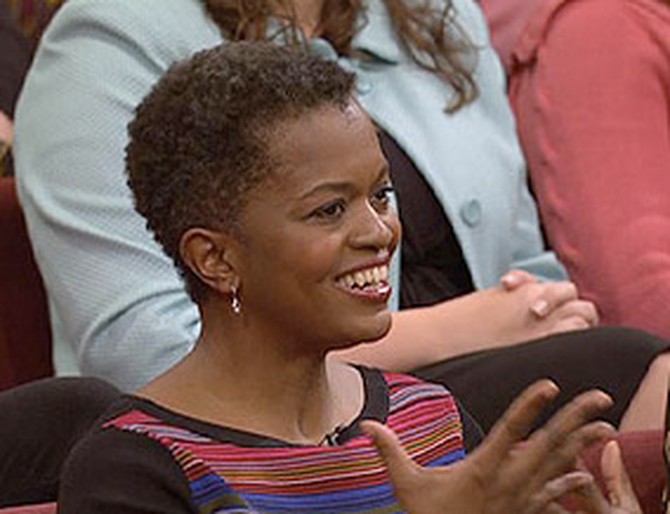
When Terri was younger, she says there was a time in her life when what
she wanted could be achieved with ease. Since she has gotten married and had two
children, she says things have become more strained. "I'm not quite manifesting
with the ease that I did before," she says. "What would you suggest in terms of
my realigning myself, or what do you think might be happening?"
Louise says Terri's problem is that she hasn't been giving herself time every day to work on her affirmations. "You need to be consistent," she says. "End your meditations then with really powerful affirmations for what you want. If you zero in, it will happen."
Martha asks Terri what she would want to do without worrying about social roles. "Think about the wildest, craziest thing you would do if you had no husband or children but you weren't devastated by loss—and plan it. Do it. You've got to get out of that social prison in your head."
By learning to love her life, Martha says Terri is giving her children a gift. "Children do not treat them the way you tell them to treat themselves," she says. "They treat themselves the way you treat yourself."
Louise says Terri's problem is that she hasn't been giving herself time every day to work on her affirmations. "You need to be consistent," she says. "End your meditations then with really powerful affirmations for what you want. If you zero in, it will happen."
Martha asks Terri what she would want to do without worrying about social roles. "Think about the wildest, craziest thing you would do if you had no husband or children but you weren't devastated by loss—and plan it. Do it. You've got to get out of that social prison in your head."
By learning to love her life, Martha says Terri is giving her children a gift. "Children do not treat them the way you tell them to treat themselves," she says. "They treat themselves the way you treat yourself."
Published 03/14/2008

